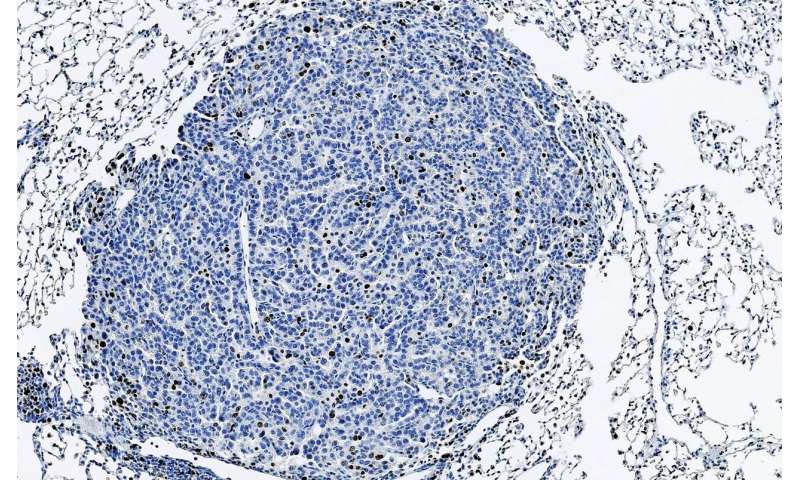Home » Health News »
Inhibition of p38 reduces the growth of lung tumors

One of the biggest challenges faced by biomedicine is the development of more selective and efficient cancer treatments. In 2018, 1.7 million people died from lung cancer worldwide, a number equivalent to the population of Barcelona. The high mortality rate of lung cancer reflects the need for the development of treatments that are more efficient.
A study headed by Ángel R. Nebreda, ICREA researcher and head of the Signalling and Cell Cycle Lab at the Institute for Research in Biomedicine (IRB Barcelona) and published in the journal PNAS demonstrates that the protein p38 is one of the key elements supporting lung cancer growth. In particular, the study focuses on cells expressing the oncogene Kras, which causes the transformation of a healthy cell into a cancer cell and whose mutations are responsible for approximately 25% of lung cancer cases.
For this study, the scientists have used genetic mouse models that develop lung tumors with the KrasG12V mutation. Using these models, they have observed that p38 inhibition leads to a dramatic reduction in tumor growth and aggressiveness. Furthermore, complementary studies performed with information deposited in cancer genome databases indicate that the patients with lower levels of p38 in tumors have a more favorable prognosis. This function of p38 is related to the production of factors that stimulate cancer cell division and thus enhance tumor growth.
Source: Read Full Article



